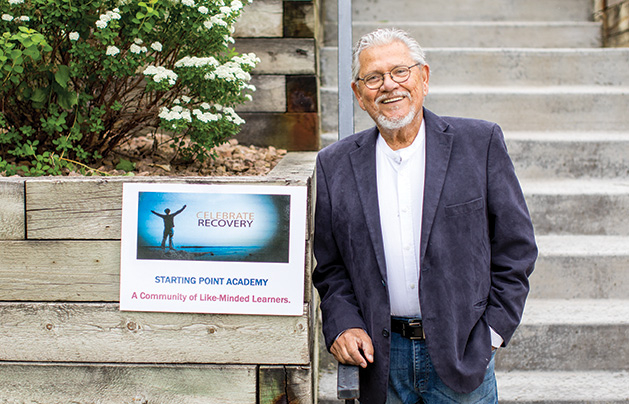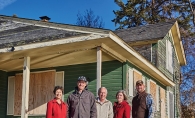
Long before earning his Ph.D. in health and human services, Louis D. Gonzales was just a rowdy eighth-grader, sitting in his Los Angeles middle school classroom. “I had a tendency to blurt things out then,” he says. “And one day I blurted out, ‘I’m gonna go to college.’ My teacher looked at me and said under her breath, ‘When pigs fly.’ She was my greatest motivator just because of that.”
Since then, Gonzales has dedicated his career to helping troubled young students get through high school successfully. He now has over 30 years of experience in alternative education as a teacher, counselor and high school principal.
This summer, he’s enrolling his first class of students in his new school, Starting Point Academy. The first class will meet in Hopkins; a site for the school’s permanent location is still in progress.
Starting Point Academy is a recovery-focused, year-round alternative high school that serves teenage students recovering from substance abuse. “We are not a treatment facility, nor are we a traditional high school,” explains Gonzales. “Our job is to provide a continuum of care by helping teens in recovery or at risk of using mind-altering substances to continue their education in a venue of sober, like-minded learners.”
One of the biggest differences between the academy and a traditional high school is the year-round schedule. “I worked in juvenile hall for two to three years,” explains Gonzales. “I started to notice [the students] needed more contact time with more breaks in between… it shortens the time they can get into trouble.” At the academy, students attend school 210 days of the year. They’ll typically spend nine weeks in school, five days a week, followed by a two-week break (additional break time occurs in July).
“The breaks are used for remediation, acceleration of credits earned, treatment follow-up, and a place where academic and recovery enhancement activities can occur,” says Gonzales.
The academy’s grading system also differs from “typical” high school. “My work in rational recovery and adolescent psychology has taught that leaving the school setting as a ‘failure' ... causes frustration, anger, stigmatization and depression in kids,” says Gonzales.
Instead, the academy has adopted a competency-based education system, encouraging students to show mastery of subjects. While enrolled, students are also expected to be working on a personal, cognitive program of recovery coaching with a licensed alcohol and drug counselor.
Apart from the curriculum, working with students in crisis can be an emotional and difficult task. Gonzales notes that he’s attended the funerals of six former students, over the last two years. But he continues to be inspired when his students achieve positive outcomes and see their lives changing for the better.
“Kids at risk are some of the brightest, the funniest, and the most enjoyable to be with,” he says. “And if I can channel these skills into someone that will be a positive human being—that's my job and I enjoy doing it.”
This message of possibility is also one that Gonzales shares with his own children, especially when he thinks back to that day in eighth grade when he was told he would never make it. “I took my son to a Pink Floyd tribute concert and guess what there was—a pig flying over the audience,” he says. “I looked at my son and said, ‘See, pigs can fly, if you work hard enough at it.’”
STARTING POINT ACADEMY
952.303.4154









